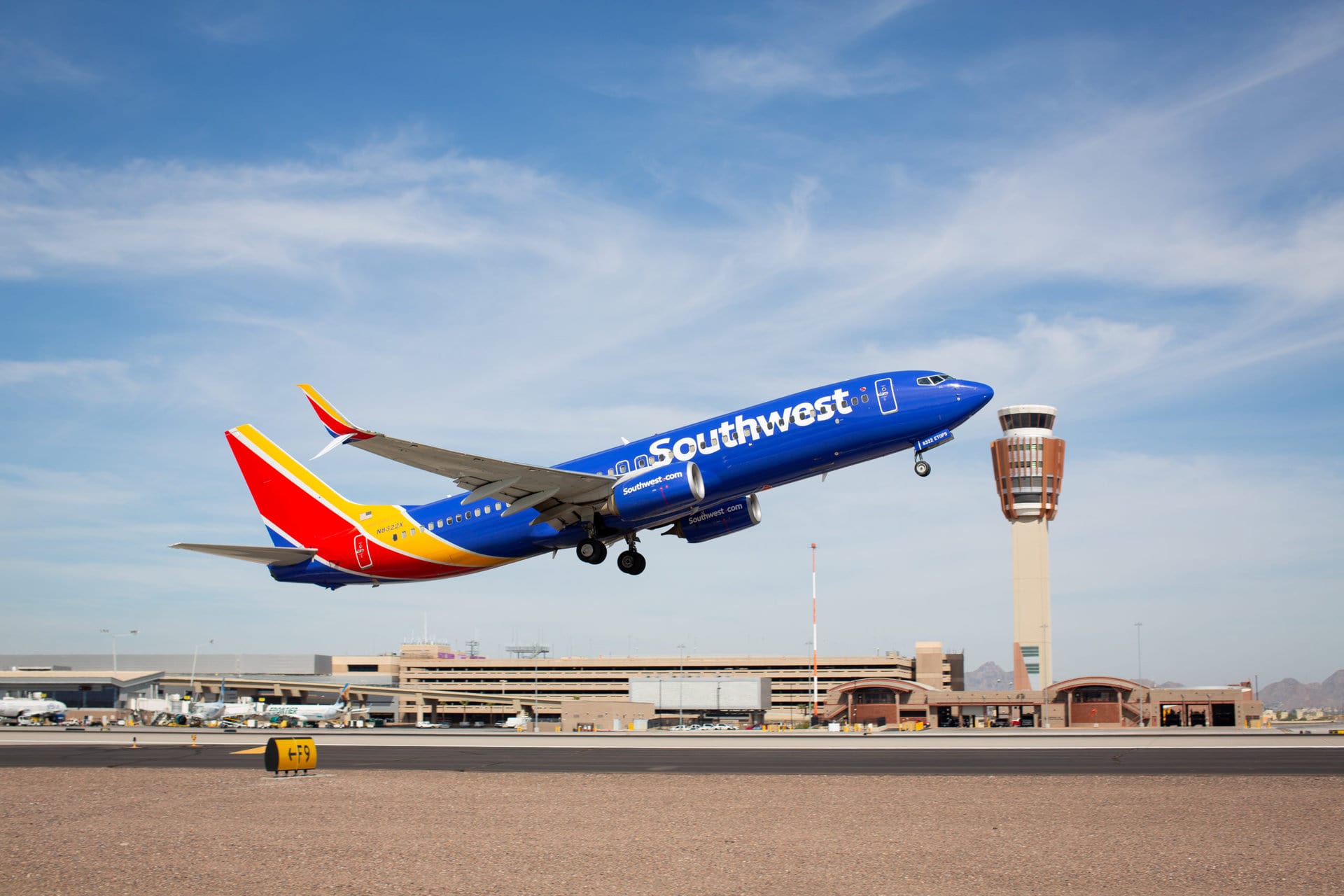What We Learned at the IATA Wings of Change Americas 2024
This year's event was held in Santiago de Chile, with more than 400 aviation industry members participating in discussions about sustainability, governance, and growth
April 16, 2024

Photo: Courtesy of IATA
In the bustling metropolis of Santiago de Chile, amidst the backdrop of the Andes, aviation industry leaders convened for the Wings of Change Americas 2024 conference hosted by the International Air Transport Association (IATA).
This yearly event symbolizes progress and teamwork, uniting more than 400 representatives from North, Central, and South America. The conference, which was held by the local carrier LATAM Airlines, took place in the context of a world recovering from the pandemic, and it provided an opportunity to plan a path toward a more secure, environmentally friendly, and economically efficient aviation industry.
The State of Latin American Tourism
Peter Cerdá, IATA’s Regional Vice President for the Americas, set the tone with a compelling keynote address. He underscored the pivotal role of tourism in Latin America, citing its contribution of 7.9 percent to GDP and sustenance of over 17 million jobs.
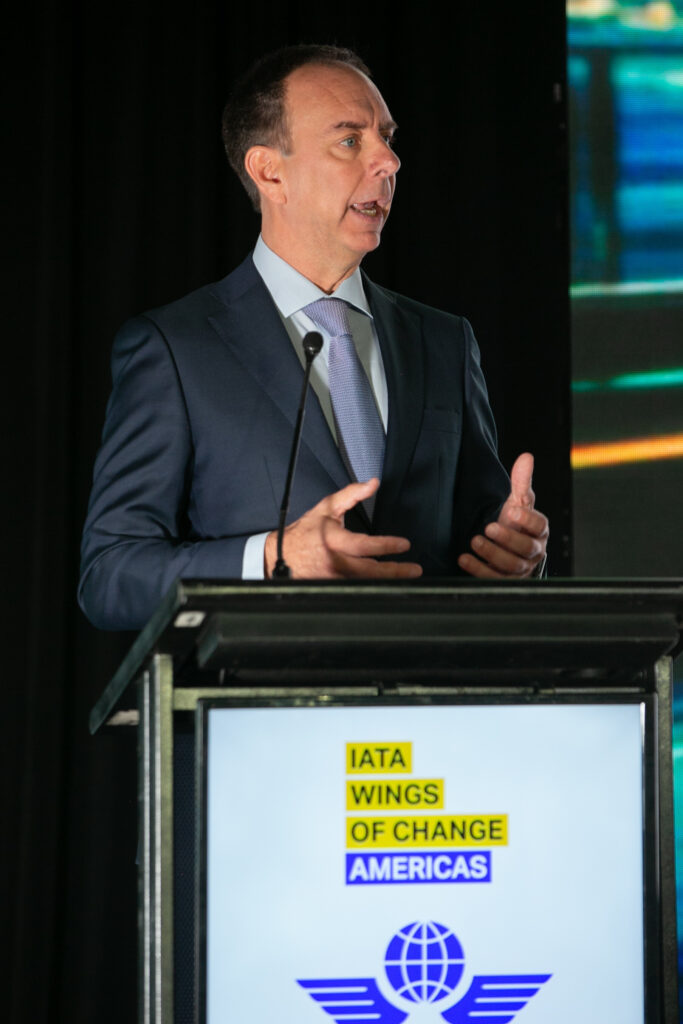
Photo: Peter Cerdá. Courtesy of IATA
Amidst the aftermath of the pandemic, Cerdá painted an optimistic picture, projecting a 12 percent increase in international visitors for the region by mid-2024 compared to pre-pandemic levels in 2019.
Cerdá emphasized that the tourism sector’s resilience is integral to achieving the UN Sustainable Development Goals. “In this part of the world, citizens of Latin America only travel, on average, 0.65 times per year,” he remarked, shedding light on the region’s travel habits and the untapped growth potential.
Taxes, Regulations, and Infrastructure
Cerdá didn’t shy away from addressing the thorny issues facing the industry. He lamented the disproportionate burden of taxes and fees on airlines, citing examples where they can constitute up to 52 percent of ticket prices in certain countries.
“The sector is not asking to be tax-exempt, but we cannot continue to be treated as the golden goose,” Cerdá asserted, calling for fair taxation policies that recognize the vital role of airlines in regional connectivity.
Cerdá observed that aviation is treated disproportionately compared to other modes of transport, such as buses, which are more common in the Americas.
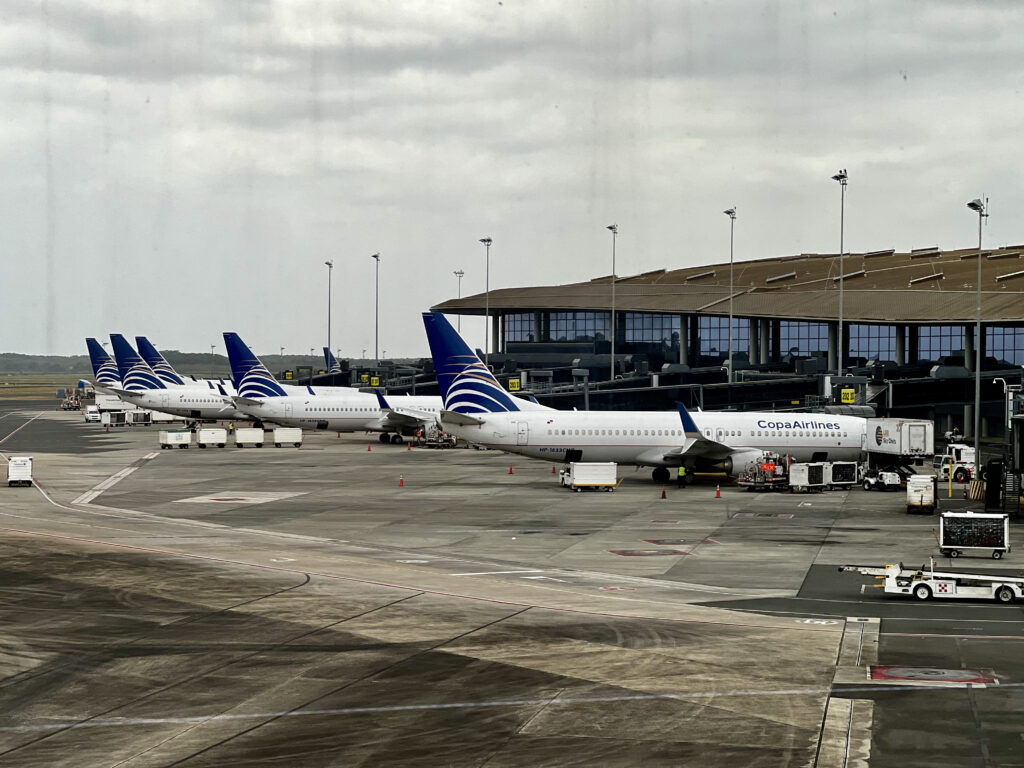
Photo: Tocumen International Airport Terminal 2, Copa Airlines. Courtesy of Enrique Perrella
On the regulatory front, he highlighted instances of overreach, urging governments to strike a balance between consumer protection and industry viability.
“Regulatory frameworks in many countries need to evolve to facilitate rather than hinder the growth of the aviation industry,” he said, advocating for a more collaborative approach between governments and industry stakeholders.
Infrastructure deficiencies also came under scrutiny, with Cerdá stressing the need for concerted efforts to improve regional airport facilities and connectivity.
“Investment in infrastructure is crucial to ensuring the long-term sustainability and competitiveness of the aviation sector,” he asserted, urging governments to prioritize infrastructure development to meet the growing demands of air travel.
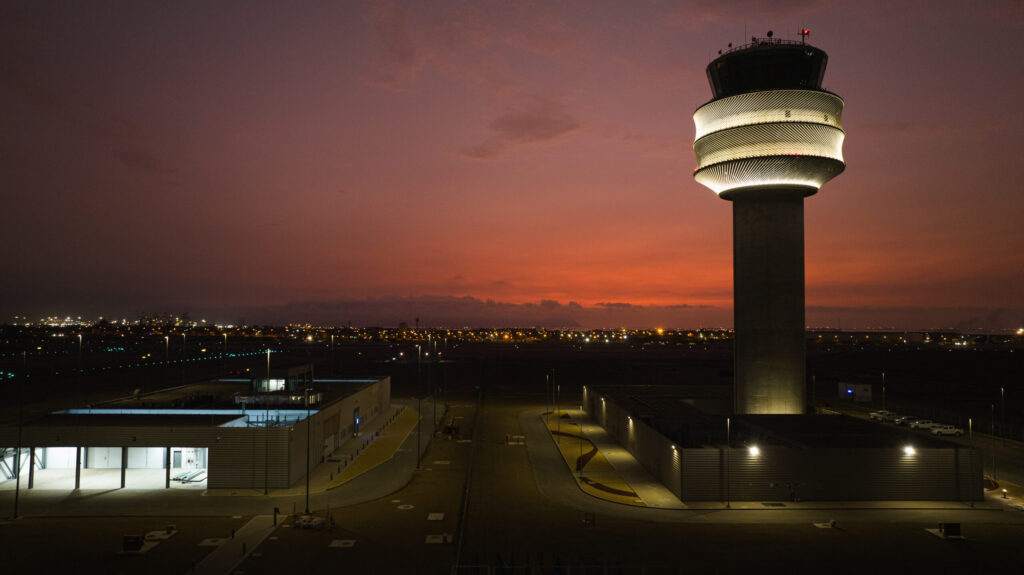
Photo: Lima Airport new control tower. Courtesy of Lima Airport Partners
The IATA’s chief for the Americas also shed some light on the new airport terminal in Lima, which is scheduled to open in December. According to him, the new terminal is not properly connected to Lima’s main roads and expressed concerns about opening a new terminal during the peak of the December rush.
Cerdá advised the Peruvian authorities to reconsider their decision and suggested that delaying the opening until a less busy period would be better for all passengers, ensuring a smooth transition.
Sustainability: A Collective Commitment
Amidst these challenges, Cerdá rallied stakeholders around a shared commitment to sustainability. The aviation industry has pledged to achieve net-zero carbon emissions by 2050, focusing on leveraging sustainable aviation fuels (SAF).
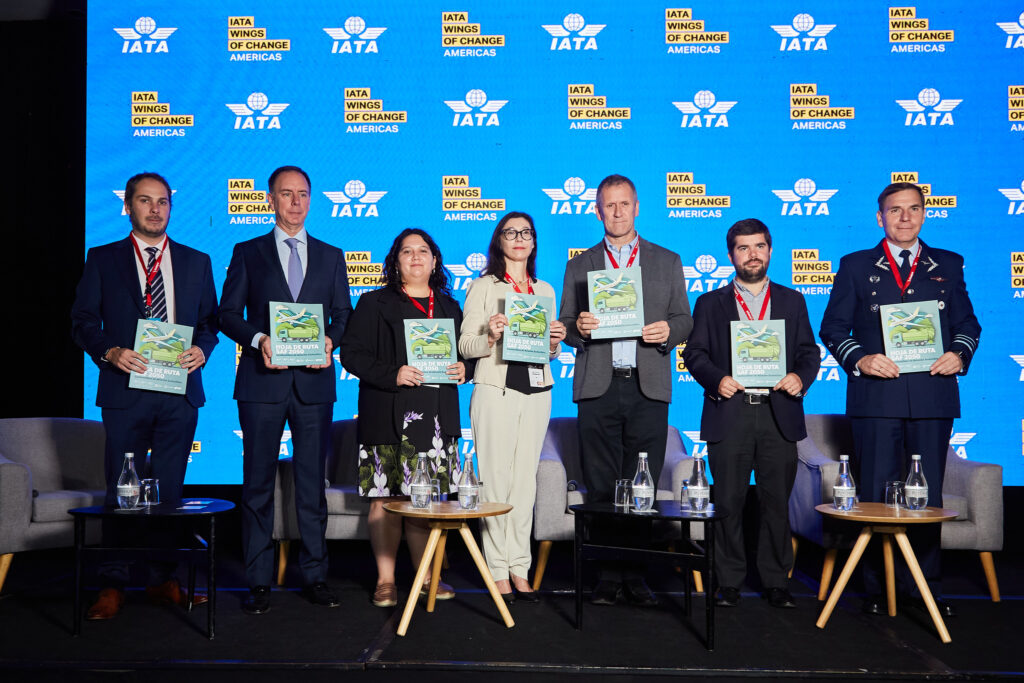
Photo: Courtesy of IATA
“As an industry, we have committed to achieving zero net carbon emissions by 2050,” Cerdá affirmed, emphasizing the industry’s proactive stance towards environmental stewardship.
Regional initiatives such as Brazil’s Combustible del Futuro program and Chile’s Vuelo Limpio initiative were lauded as positive steps towards reducing carbon emissions and promoting the adoption of SAF system-wide.
“These initiatives demonstrate the potential for innovation and collaboration to drive meaningful change in the aviation industry,” Cerdá noted, highlighting the importance of government support in facilitating the transition to a more sustainable aviation future.
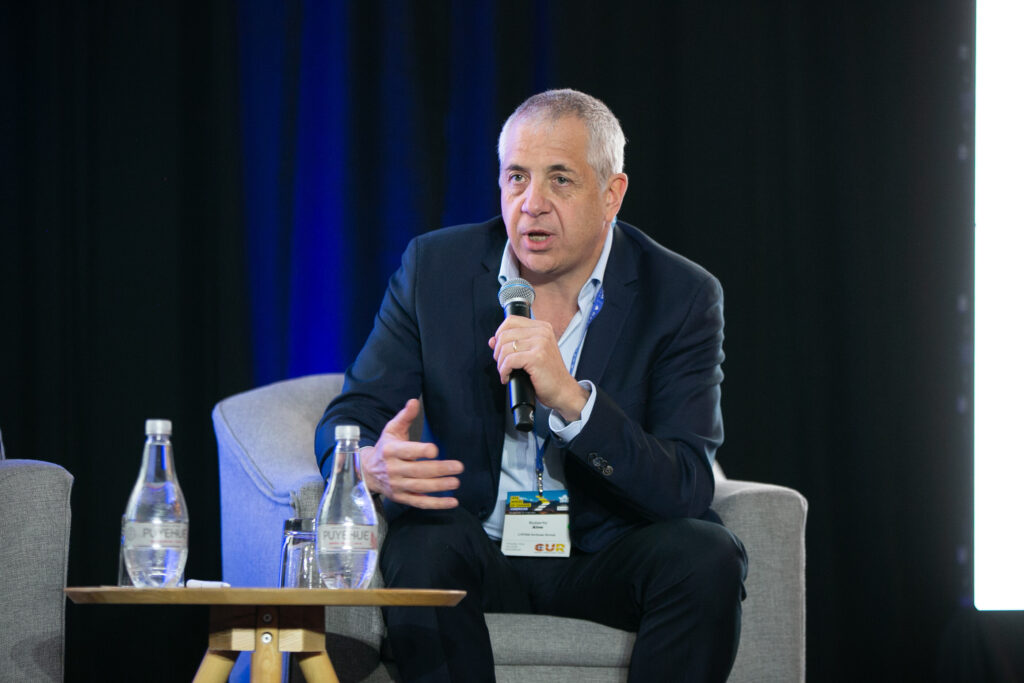
Photo: Roberto Alvo, CEO LATAM Airlines. Courtesy of IATA
During a discussion panel, Roberto Alvo, the CEO of LATAM Airlines, expressed his concern regarding the current push for airlines to become net zero by 2050. He fears this initiative might be a passing trend and stresses the need for all stakeholders to act.
Alvo encourages students and young professionals to educate themselves and for legislators to pass new laws promoting sustainability in the transport industry. The general consensus at the event was that the decisions made today will impact future generations.

Photo: Frederico Pedreira, CEO avianca airlines. Courtesy of IATA
Following the enlightening panel discussions, the event program followed with open interviews titled “How to manage a successful airline and meet passenger demand,” featuring Frederico Pedreira, CEO of avianca airlines, and Holger Paulmann, President of Sky Airline.
Women in Aviation
At the conference, IATA members discussed their commitment to the 25by2025 initiative. Introduced in 2019, it aims to enhance diversity, equity, and inclusion in the aviation industry by adopting best practices and increasing female representation in senior roles and underrepresented areas.
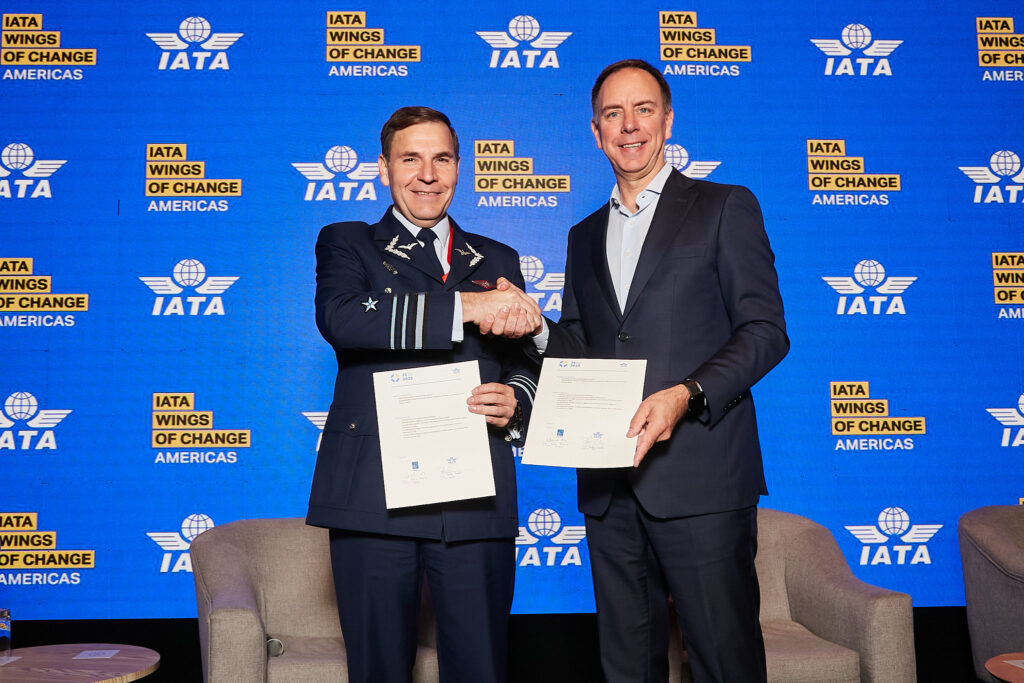
Photo: 25by2025 Initiative. Courtesy of IATA
The 25by2025 initiative focuses on increasing women’s participation in events, panels, and conferences, appointing more women to IATA governance roles, and increasing the number of women in top senior positions to a minimum of 25 percent.
Resilience and Vision
In closing, Cerdá celebrated the resilience of the aviation industry in weathering the storm of the pandemic. He emphasized the industry’s role as a catalyst for socioeconomic development, transcending political shifts and serving as a vital artery of connectivity.
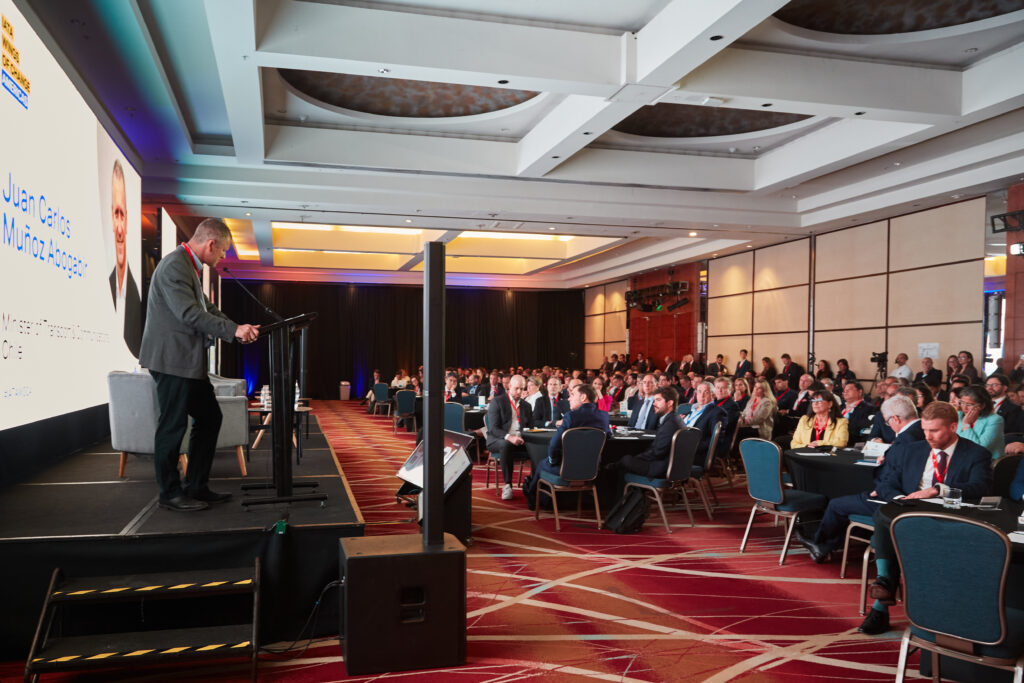
“The aviation industry has demonstrated its value and resilience in recent years,” he concluded, encapsulating the spirit of perseverance that permeated the conference.
The Wings of Change Americas Conference was a testament to the indomitable spirit of the aviation industry. Against unprecedented challenges, stakeholders came together to confront adversity with innovation and collaboration.
Up Next: IATA AGM
The IATA Annual General Meeting (AGM) is scheduled to take place in Dubai this June, hosted by Emirates and its retiring CEO, Sir Tim Clark. Considered the world’s largest gathering of airline leaders, it is expected to attract over 1,500 attendees who will discuss various sustainability-related topics, as well as the current state of the industry.
The AGM usually sees a significant turnout, with representatives from IATA’s member airlines, industry associate partners, international and regional associations, leading manufacturers, and industry suppliers in attendance, along with a large media contingent to cover the proceedings.
As we soar into the future, guided by the insights gleaned from this gathering, let us remain steadfast in our commitment to forging a safer, more sustainable, and inclusive aviation ecosystem for generations to come.



